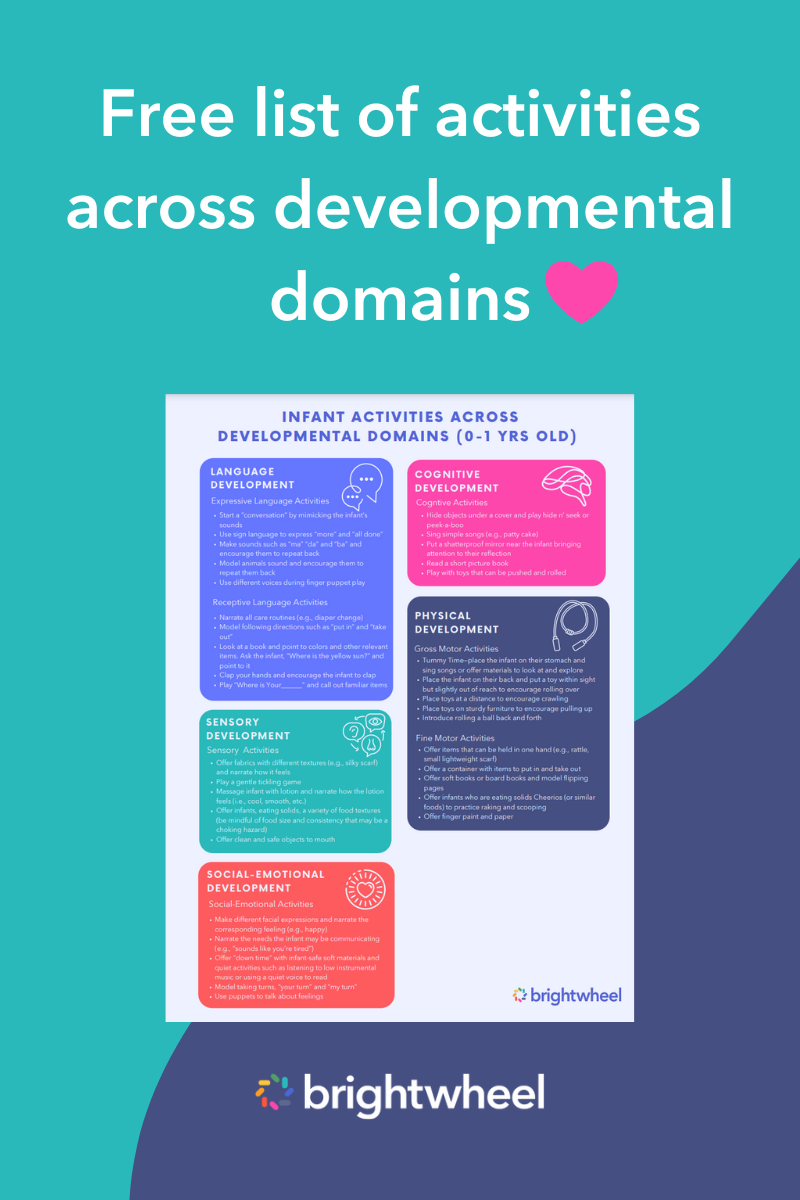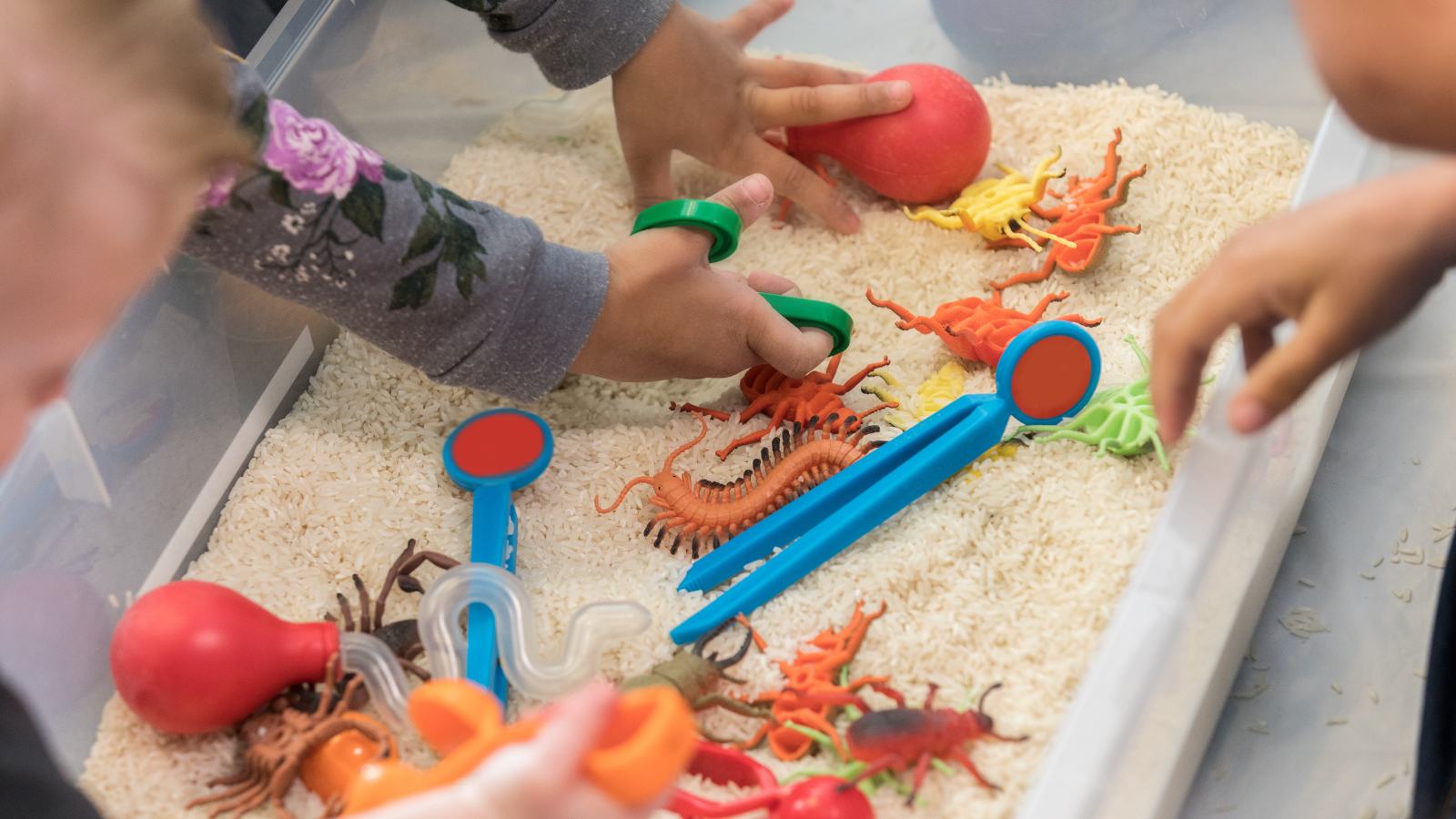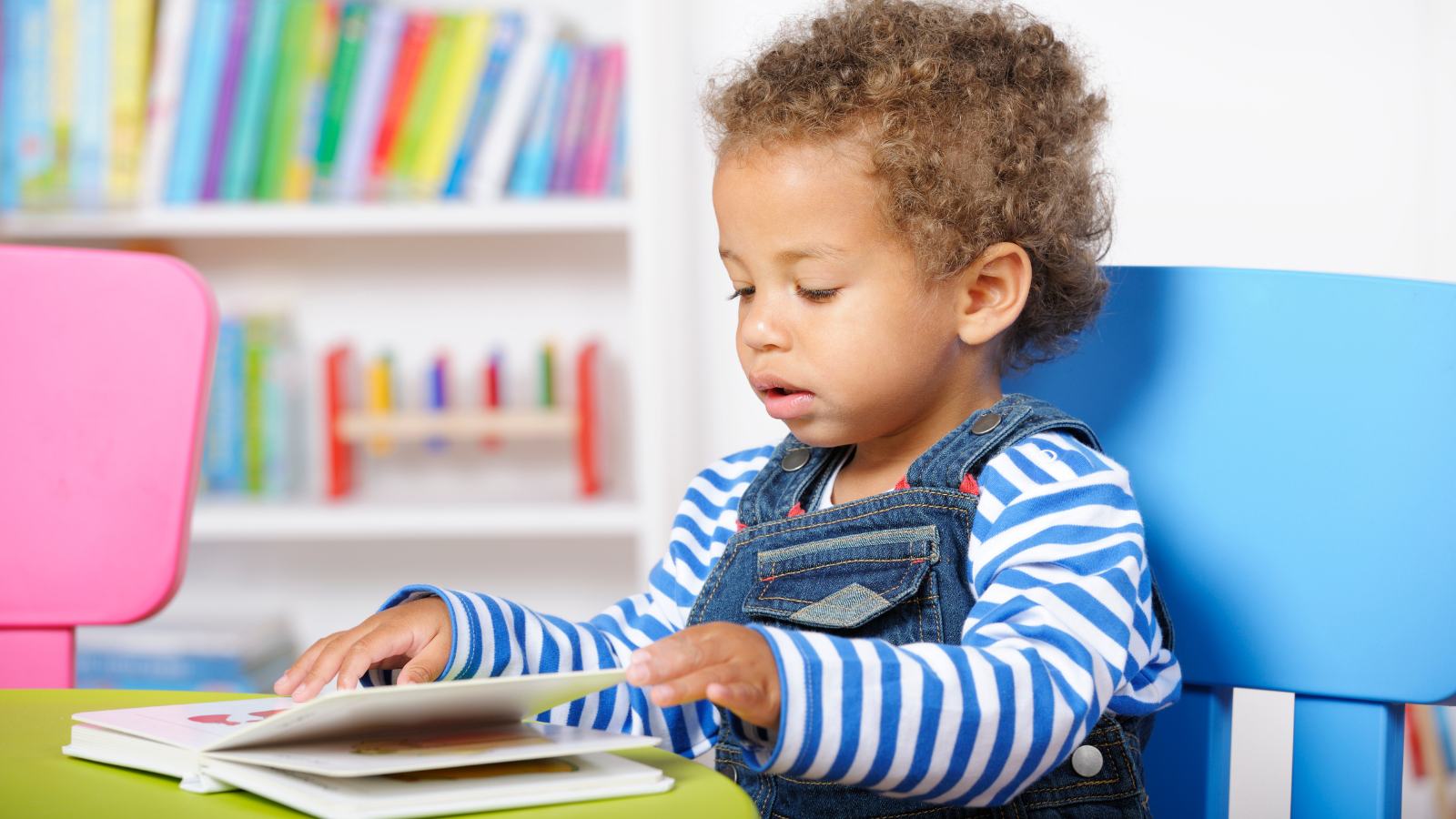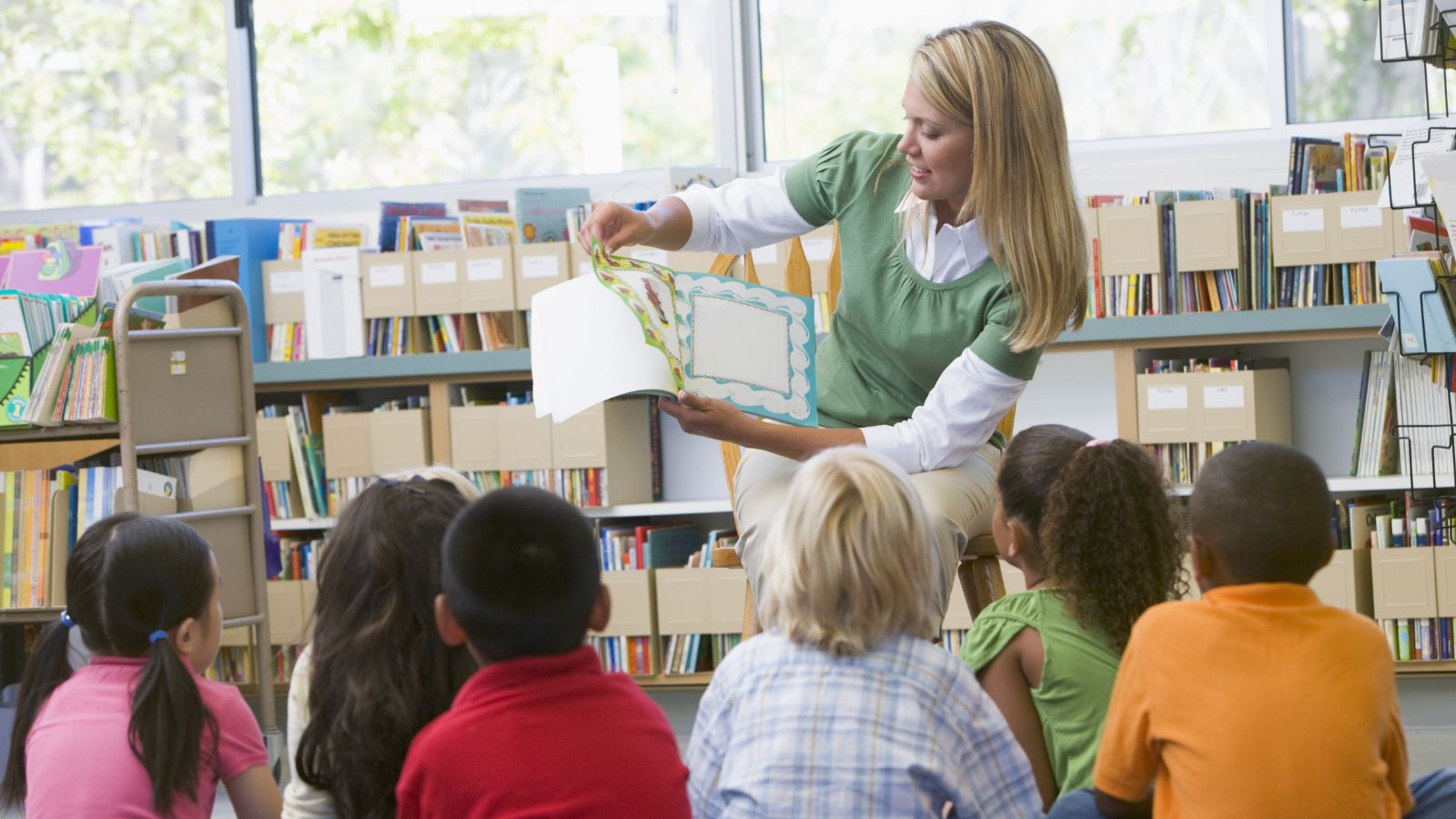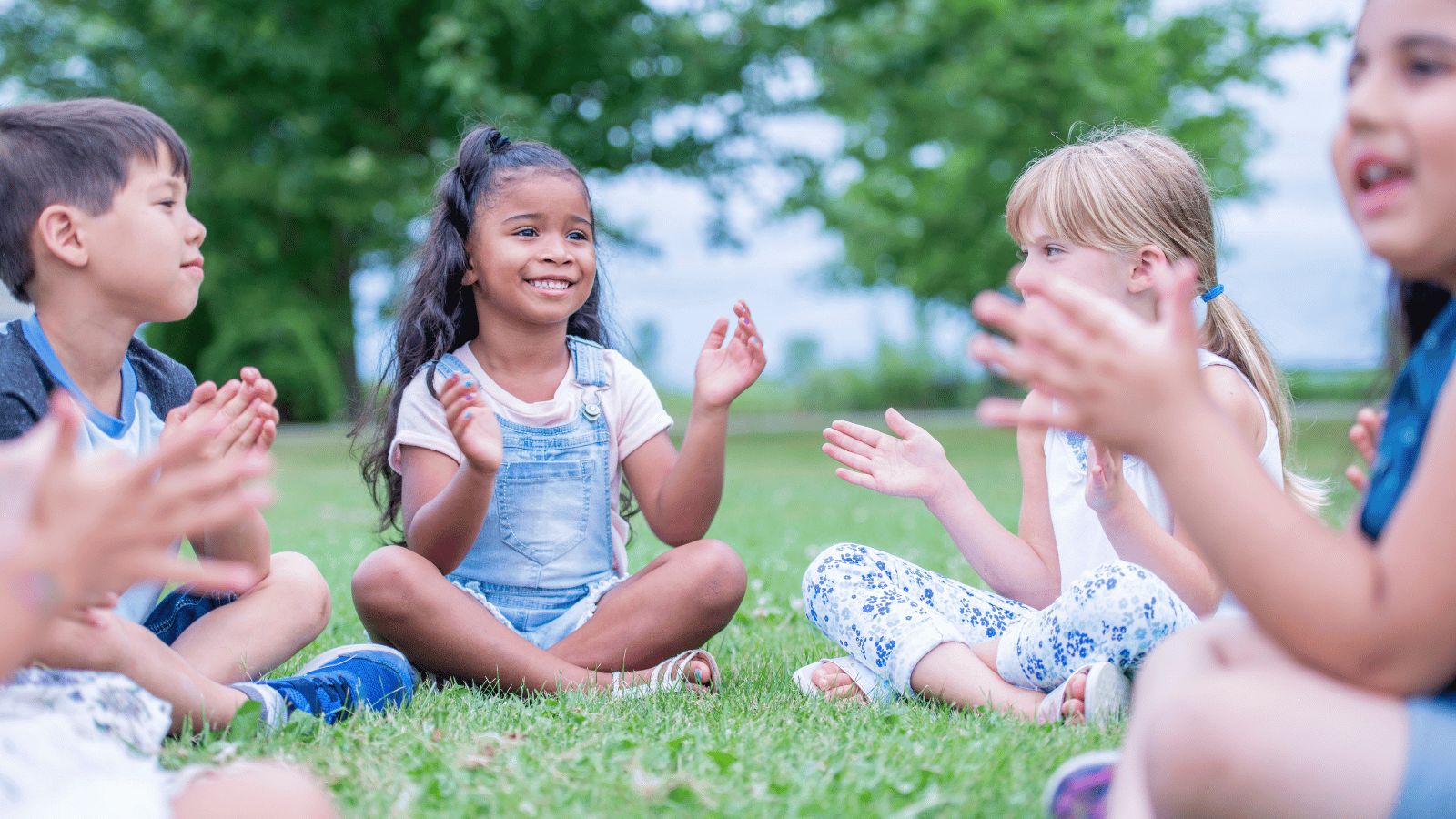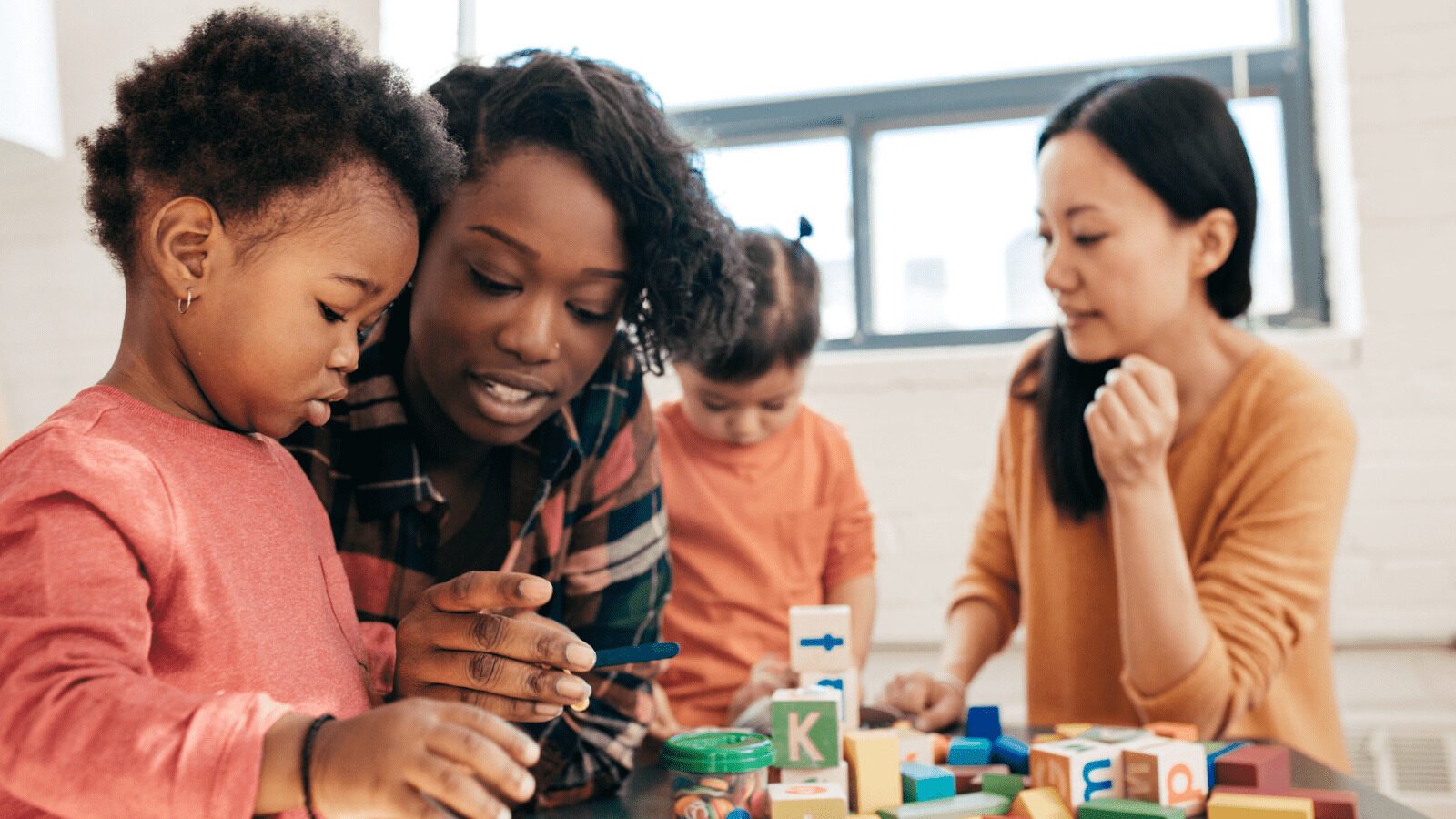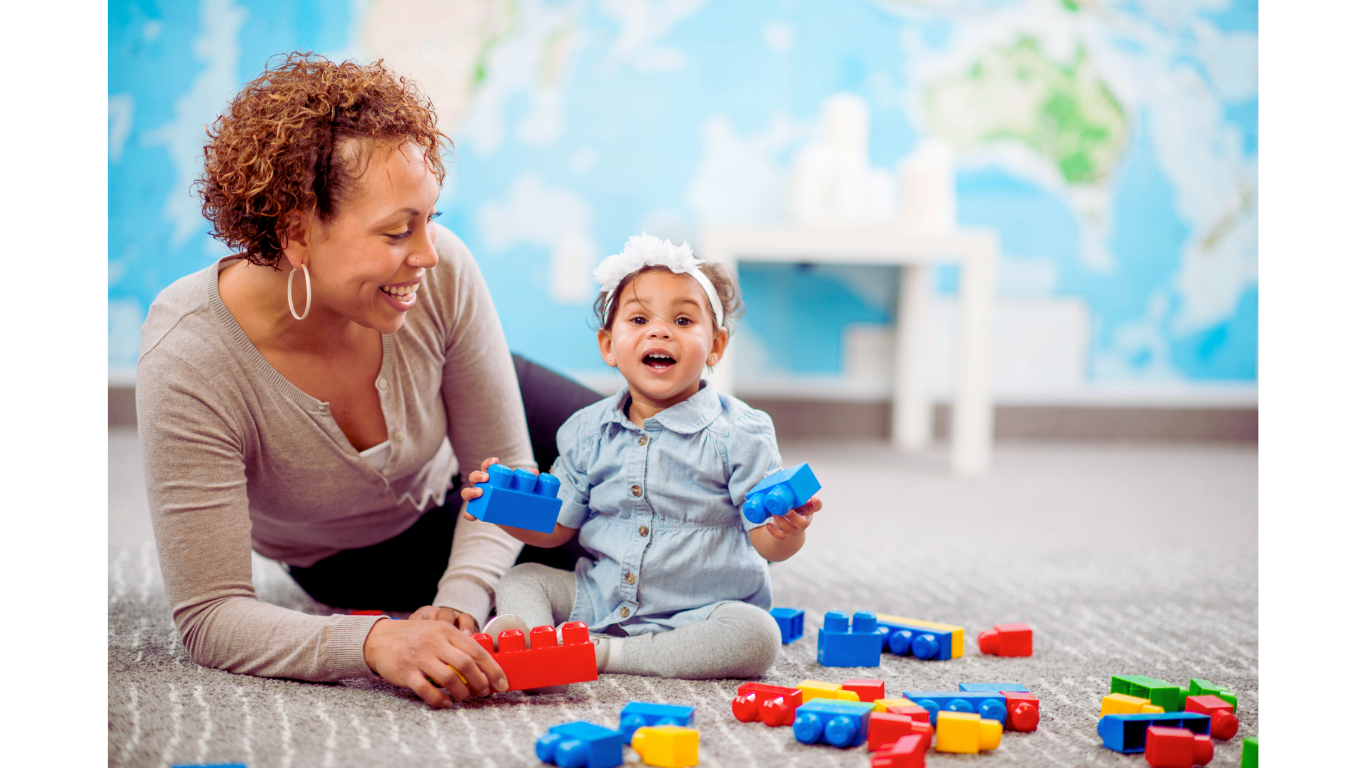Cognitive development refers to how children’s minds change and grow as they become more aware of the world around them. As children develop, they gain more complex thinking, reasoning, and problem-solving skills. Their expanding cognition is closely linked to other developmental domains such as language and social-emotional skills. Below, we break down the major cognitive development milestones, how to support children’s cognitive growth, and how to recognize any delays.
What are cognitive developmental milestones in early childhood?
Cognitive development in early childhood is about how children think (cognition). It involves the development of children's reasoning, problem-solving, decision-making, understanding, and memory skills as they become more aware of the world around them and make sense of it. Cognitive development includes learning how to walk, talk, and read. It also consists of a child's ability to think abstractly about concepts such as love and empathy or to categorize people, places, and things, such as associating dogs with the category of animals. Cognitive development is one of four significant developmental domains, along with physical, social-emotional, and language.
How do children progress through the milestones?
Cognitive development begins in infancy and continues to evolve throughout adulthood as a result of life experiences. According to psychologist, Jean Piaget, children go through four stages or milestones of cognitive development:
Sensorimotor stage (birth to age 2)
This is the first stage of cognitive development, where infants learn about their environment through sensory information such as touch, sound, and sight. In this stage, children learn by experimenting with their environment, and interact with toys, people, and objects to see how they will react. They will often touch and taste things to understand what the response will be. The main goal of this stage is for children to develop object permanence, the concept that things continue to exist even when they cannot be seen.
Preoperational stage (ages 2 to 7)
This is the second milestone or stage of cognitive development. During this stage, children learn how to think about things more symbolically and abstractly than before, meaning they are able to use their imagination and understand that an object exists even though they cannot see it. An example of this would be playing hide and seek or looking for an object that you hid under a towel or behind your back. However, children still struggle with thinking logically during this stage. Some characteristics of the preoperational stage include engaging in make-believe, beginning to understand conversion, or the concept that a quantity stays the same even if you change the size, shape, or container it’s in, and thinking intuitively rather than relying on perception.
Concrete operational stage (ages 7 to 11)
The concrete operational stage is the third stage of cognitive development. This is when children begin to think more logically, show concrete reasoning, and are able to see things from another person’s point of view. This is also the time when children are able to classify objects and mentally arrange a group of items into a sequence, such as organizing items from tallest to shortest. However, children still struggle to think about abstract ideas or hypothetical situations during this stage.
Formal operational stage (age 12 and up)
This is the final stage of cognitive development, where the child develops the ability to think logically and understand abstract ideas. Children are able to think about hypotheticals and formulate various solutions to solve them.
Importance of cognitive development
Cognitive development or cognition refers to taking in, processing, storing, communicating, or applying information. All of these factors contribute to learning. Children’s brains are like a sponge when they’re young. The more brain stimulation they receive early on, the more likely they will succeed academically. When families and teachers foster cognitive development from birth, it lays the foundation for children to succeed later in life. Cognitive skills must function well and be strong for children to process and retain information.
Cognitive development is an important and foundational aspect of early childhood education. Every child learns and develops at their own pace, however it is important for educators to understand cognitive development milestones for each age group so they can develop effective teaching strategies and incorporate them in their learning plans.
Cognitive development skills by age group
The chart below includes some of the cognitive development skills a child may reach at certain ages. The chart is not all-inclusive.
Age |
Milestones |
| 0 to 3 months |
|
| 3 to 6 months |
|
| 6 to 9 months |
|
| 9 to 12 months |
|
| 12 to 18 months |
|
| 18 months to 2 years old |
|
| 2 to 3 years old |
|
| 3 to 4 years old |
|
| 4 to 5 years old |
|
| 5 to 6 years old |
|
Activities to promote cognitive development
Infants and children learn by interacting with their environment. There are so many activities families and teachers can do to help children grow and strengthen their cognitive skills. Here are some actions you can do to stimulate cognitive development with the children in your care.
Infants
- Reading: Reading to the infants in your care is a great way to help them recognize voices and sounds, which helps with the development of language skills and helps improve listening skills.
- Singing: Singing, just like reading, is another way to help children develop language skills and improve listening skills. As you sing, the baby will learn and pick up new words.
- Playing with toys: Children love to experiment with their environment to learn how it will react to them. Allow infants to play with various objects, including interactive toys. The objects can be as simple as a box, spoon, or an age-appropriate toy with lights, buttons, and music. As infants interact with these toys, they stimulate their cognitive skills by learning more about cause and effect.
- Hiding objects: When infants get a little older, at around seven to eight months, you can play games such as peek-a-boo, or hide objects behind your back after showing them. These activities help the children develop the concept of object permanence, which is the idea that an object exists even when it is hidden.
Toddlers
- Play music: Toddlers love to sing, dance, and listen to music. Playing music and encouraging toddlers to sing along is a great way to help them develop cognitive skills. Singing along also helps with memory development.
- Practice animal sounds: It is an excellent milestone in cognitive development when a child can mimic animal sounds and associate them with the correct animal.
- Learn with flashcards: Using flashcards and posters to teach children is a great way to develop their memory. They can learn colors, numbers, letters, animals, and more when they use flashcards and posters. Taking the time to stop and ask them, "Where is the dog?" or "Can you point to the color blue?" are all great ways to help them develop their cognitive skills.
- Pretend-play: Children have great imaginations. Giving them toys to play with, such as kitchen toys, dress-up clothes, or a toy washer and dryer, allows them to use their imagination and grow.
Preschoolers
- One-to-one correspondence activities: One-to-one correspondence activities, which are activities that encourage the ability to touch count by touching an object in a set only once, are great ways to help preschoolers develop early math skills.
- Matching and memory games: Playing matching and memory games help children with developing attention, concentration, recognition, and memory skills.
- Board games: Playing age-appropriate board games, such as Monopoly, for ages four and over, and Chutes and Ladders, is another great way to help children with attention, concentration, and recognition. As they roll the dice, count the dots on the dice, and move their character along the game board, this helps with early math and one-to-one correspondence skills.
- Name exploration activities: Children love learning how to spell their names. You can write the letters of their names on spoons or create various name puzzles. Learning how to write and spell their names will help develop literacy skills as well as some of their fine motor skills.
Signs of cognitive delays and when to seek professional help
As an early childhood educator, you should always look for ways to ensure that the children in your care meet their milestones. While developmental milestone checklists can help provide basic guidance on what to expect at each age group, children’s development still varies as each child develops at their own unique pace. Some children might meet milestones earlier, while others may reach them a bit late. However, if you are concerned that a child isn’t meeting key development milestones or has lost any skills, it’s important to act early.
Many factors can contribute to a developmental delay, including genetic conditions, health conditions, and other environmental factors. Some examples of cognitive delays include:
- A delay in milestones such as sitting, crawling, or walking
- A delay in speech, such as not saying words or difficulty speaking
- Trouble understanding social rules or consequences of behavior
- Difficulty with problem-solving tasks such as putting a puzzle together
- Difficulty following instructions
- Short attention span or inability to remember information
- Lack of age appropriate self-help skills
If you notice developmental delays, get the child’s family involved right away. You can recommend that their child get evaluated by their pediatrician, who can conduct a comprehensive assessment, and connect you with your state’s early intervention program if necessary.
Conclusion
Cognitive development is essential to a child’s growth and overall learning. When a child has healthy cognitive development early on, they’re more likely to succeed later in life. Educators and families play an important role in fostering a child’s cognitive skills through incorporating developmentally appropriate activities, tracking key milestones, and acting early if there are any concerns.

